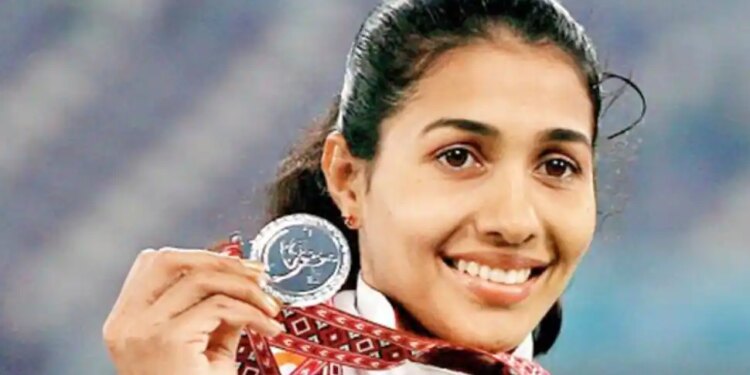Legendary long jumper and Athletics Federation of India (AFI) senior vice-president Anju Bobby George on Sunday (May 29) dropped a bombshell, alleging that few of the country’s athletes are bringing back performance-enhancing drugs from overseas, which are being distributed among some of their colleagues. Speaking at the two-day Annual General Meeting (AGM) of the AFI here, Anju, the country’s lone World Championships medallist, said many of the banned drugs being consumed, have been brought by athletes caught for doping originated from abroad.
“Many banned drugs being taken by the athletes caught for doping are not available in India, they come from abroad,” Anju, also an acclaimed coach, has reportedly briefed the general body.
“It is not only the coaches supplying banned drugs to young athletes but some athletes travelling abroad for training, procure the (performance enhancing) drugs and distribute them to others. We also have to stop this,” said Anju, who won a long jump bronze at the 2003 Paris World Championships.
AFI President Adille Sumariwalla, on his part, warned the athletes that they will be put under more intense dope testing than before by the National Anti-Doping Agency (NADA) and urged them to stop the business of taking drugs and then claiming innocence later on. Sumariwalla said the NADA has strengthened its dope testing capabilities by recruiting more personnel to crack down on the drug cheats.
“I had recently met with NADA people and they are going to test more samples. They have recruited 115 dope testing officers and they are going to district and state level meets besides the national level events,” Sumariwalla said while emphasing the zero tolerance on doping on the part of AFI.
“We have urged the NADA to conduct dope testing at the junior meets, district, state and departmental level meets also. I am telling the athletes, you will get caught someday and stop this ‘dhanda’ (business).”
Sumariwalla said most of the doping incidents occur at lower levels and outside the national camp, and coaches under the government’s payroll were responsible for intentionally giving banned drugs to the younger athletes. “These coaches are transferred every three months. If they produced a medal-winning athlete by giving the young athlete banned drugs, their transferred can be stopped.
“Everybody (dope offenders) will say they did not know that they had taken the banned substances and they were innocent but I can tell you 99 per cent of those caught in doping know what they were doing. India is number three in list of doping (highest number of dope offenders). We can be banned like Russia.”
Indian athletics touched a new high last year after star javelin thrower Neeraj Chopra won the first Olympic gold in athletics – second individual gold in any sport. But the dope flunking of top discus thrower Kamalpreet Kaur and another javelin thrower Shivpal Singh have once again brought back the menace of doping in athletics at the forefront.
“Some athletes are provisionally suspended and some are not and they have challenged their (suspensions). Till the time their challenges are not over (not decided by competent tribunals), we will not be able to provide any update,” Sumariwalla said when asked about the recent doping cases.
AFI conducting its Executive Council Meeting and Annual General Assembly Meeting in Chandigarh from 27 to 29 May 2022. Various imp. issues are part of the discussions in the house. The meeting will be concluded with the various developmental decisions. @Adille1 @anjubobbygeorg1 pic.twitter.com/eqrOWuyebi
— Athletics Federation of India (@afiindia) May 28, 2022
Sumariwalla said the AFI could not have done more than what it has done to fight the menace of doping. “I was the one who wanted criminalisation of doping, jail terms for dope offenders. We were one of the first NSFs, who had a no needle policy, what more could we have done? We don’t have the powers of police,” he said while addressing a press conference after the AGM.
“The Anti-Doping Bill (introduced in the Parliament recently) did not make doping a criminal offence but I am hoping it will be done so in stage 2,” he said without elaborating.
The AFI also approved the annual calendar, ratified national records, took a decision on compulsory online entry of athletes for various events to stop ‘impersonation’ and digitise all its archives. It also decided to intensify on the work of producing more qualified Indian coaches.














